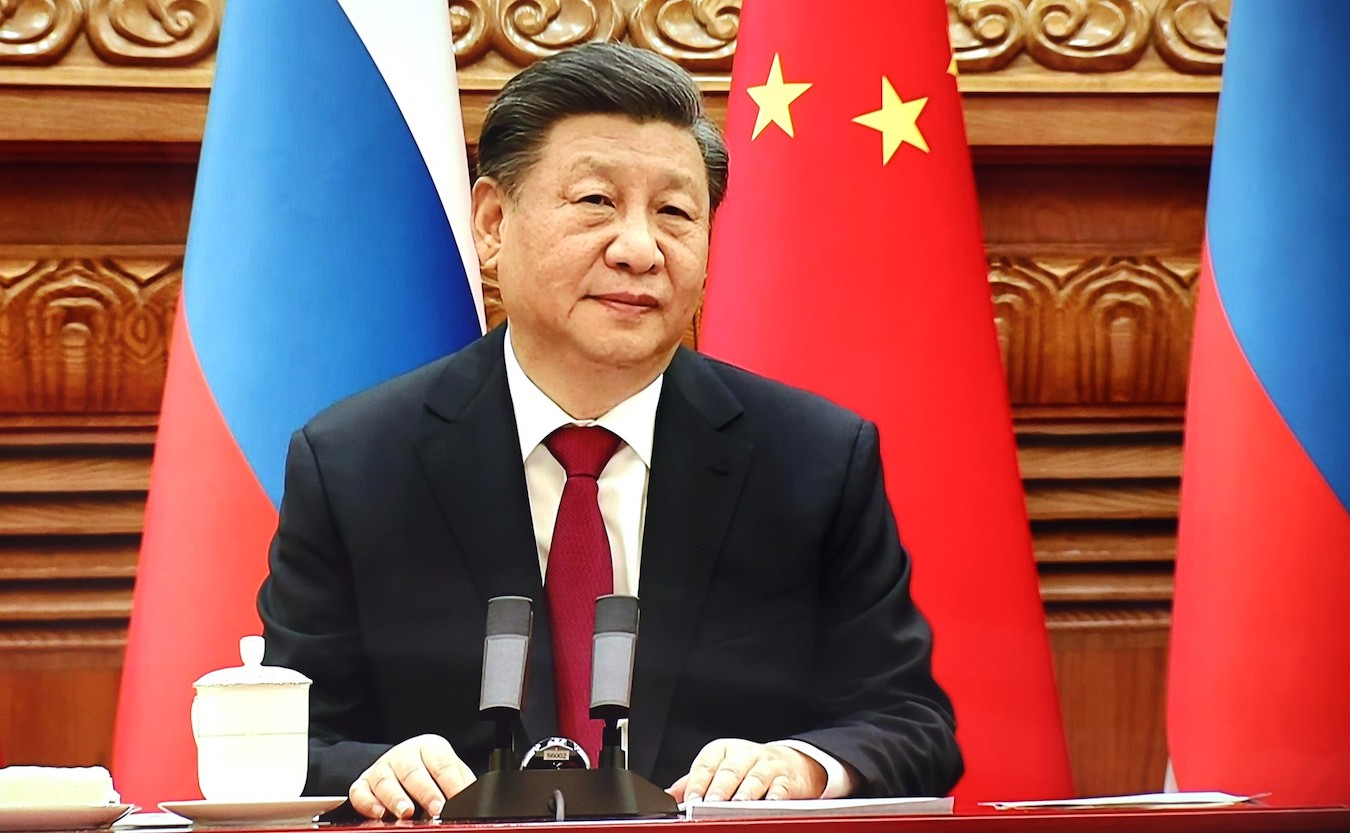by Brian Hioe
語言:
English
Photo Credit: Ministry of National Defense/Facebook
WITH LESS THAN ten days before the elections, some experts have questioned whether China is attempting to step up efforts at interference.
One of the dimensions that this takes place is through military threats. China has not dramatically escalated such threats ahead of the elections along the lines of the exercises that took place when then-US Speaker of the House Nancy Pelosi traveled to Taiwan in August 2022 or when Taiwanese president Tsai Ing-wen met with subsequent US Speaker of the House Kevin McCarthy in April 2023.
In particular, China is likely cautious of the potential for blowback, if such a series of hypothetical exercises were to push voters into backing the DPP. This has occurred in the past, such as when a New Year’s speech by Xi Jinping in 2019 led to an uptick in Tsai Ing-wen’s approval rating–members of the Taiwanese public were angered by Xi stating that force was still on the table for unifying Taiwan and China.
 Chinese president Xi Jinping. Kremlin/CC BY 4.0
Chinese president Xi Jinping. Kremlin/CC BY 4.0
This may explain some of the tenor of Xi’s more recent comments, in which Xi appeared to try and balance threat and moderation. In comments made on December 26th, on the occasion of Mao Zedong’s 130th birthday, Xi stated, “The complete reunification of our motherland is an overall trend, a righteous cause, and the common aspiration of the people.”
By contrast, during his New Year’s address, Xi avoided the bluster of these preceding comments, though he emphasized his continued commitment to unification. Unification only received a brief mention.
This is in line with China’s carrot-and-stick approach as of late, in which moderation is combined with threat. For example, even as China announced the end to preferential tariffs for 12 chemical compounds as a means of signaling an economic threat to Taiwan, China announced that it would be lifting a ban on Taiwanese grouper that was originally announced in 2022. China may hope to present two signals at once, in emphasizing an economic threat to Taiwan, while also trying to signal seeming moderation. This takes place at the same time as calls by Chinese authorities for businesses to financially support the KMT, suggesting that this may be a condition for continuing to do business in China.
In the meantime, Taiwanese organizations that work on disinformation have reported an increase in disinformation. The Taiwan AI Labs has reported that an incident involving a student stabbing another student to death in New Taipei has been used to drum up support for the death penalty.
It is thought that this would benefit the KMT, as DPP candidate Lai Ching-te supports the end of the death penalty, though strong social support for the death penalty has led Lai to downplay this stance. To this extent, the KMT has framed the Tsai administration as having effectively banned the death penalty, given that it rarely carries out executions–even if the Tsai administration has faced criticisms in the past for carrying out executions before elections in order to try and avoid such criticisms and to drum up such support.
6 PLA aircraft and 6 PLAN vessels around Taiwan were detected by 6 a.m.(UTC+8) today. 1 of the detected aircraft (Y-8 ASW) had entered Taiwan’s SW ADIZ. #ROCArmedForces have monitored the situation and tasked appropriate forces to respond. pic.twitter.com/Yiyrfiwz7D
— 國防部 Ministry of National Defense, R.O.C. 🇹🇼 (@MoNDefense) January 4, 2024
Tweet by the Ministry of National Defense about the balloons
Nevertheless, where Chinese military threats are concerned, the use of spy balloons has been reported for several consecutive days. This includes a number of instances of spy balloons passing over Taiwan itself.
Chinese air incursions into Taiwan’s Air Defense Identification Zone, the airspace in which airplanes normally identify themselves for security purposes, occur on a daily basis at this point. Yet such aircraft do not pass over Taiwan directly.
China has sought to convey the impression of aerial and aerospace activity that pass over Taiwan in the past, however. This includes missile launches into space that are framed as passing over Taiwan.
To this extent, after an incident in January and February earlier this year involving an alleged Chinese spy balloon passing over the US, the Chinese government is probably aware that using spy balloons directed at Taiwan can be useful for psychological intimidation. As such, China likely deliberately chose to carry out this action in recognition of how a spy balloon passing over Taiwan would be perceived–it is not so escalatory as military exercises but at the same time can try to depict the Tsai administration as inept and unable to fend off military threats, suggesting that resistance to China is futile and Taiwanese should comply with its political will in the elections.

